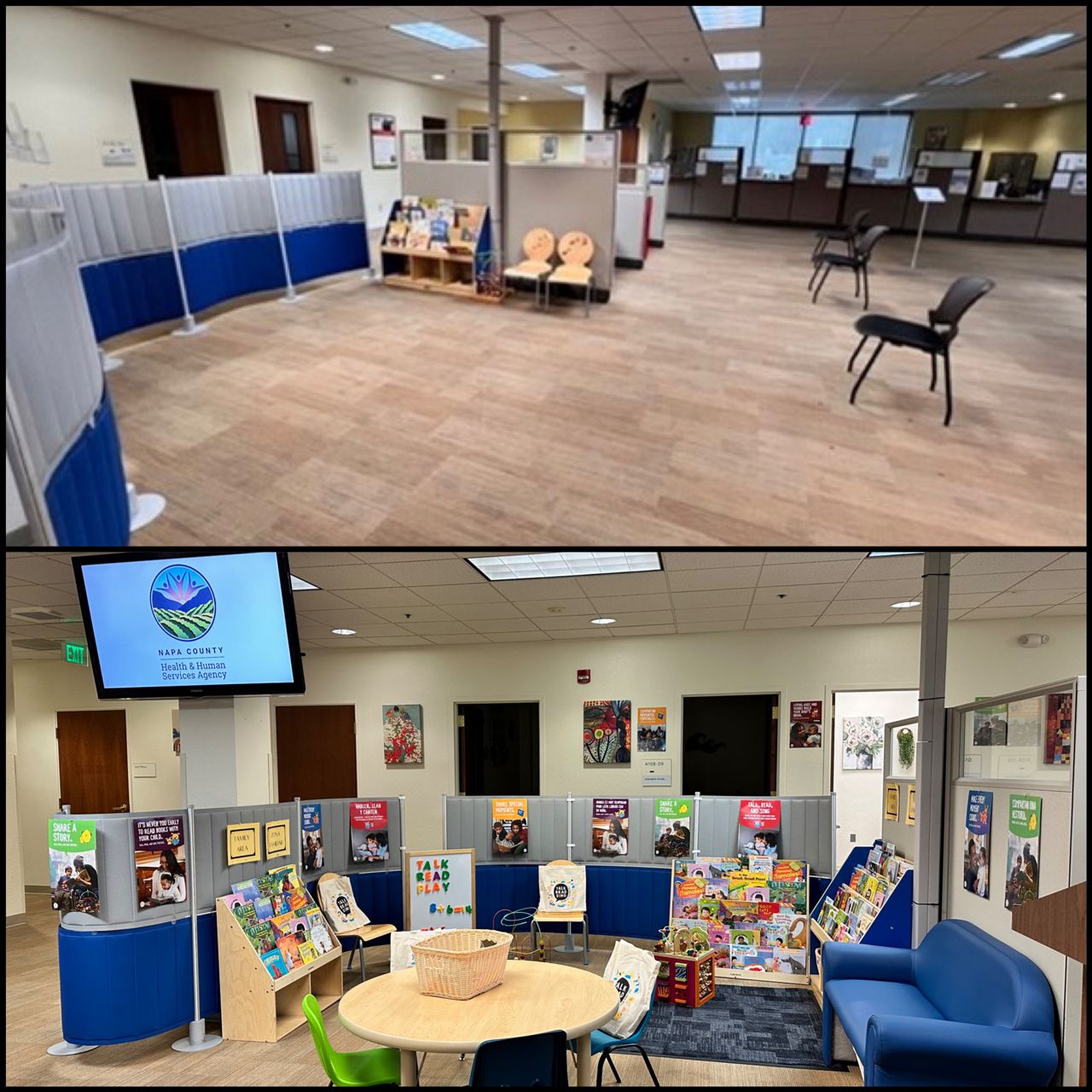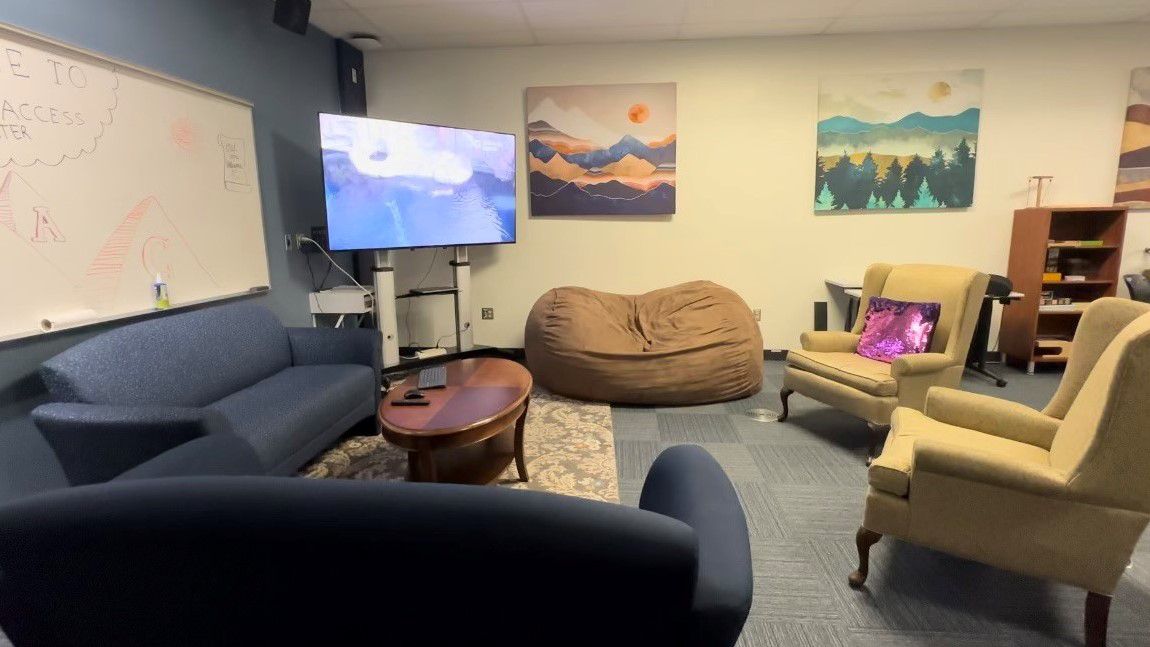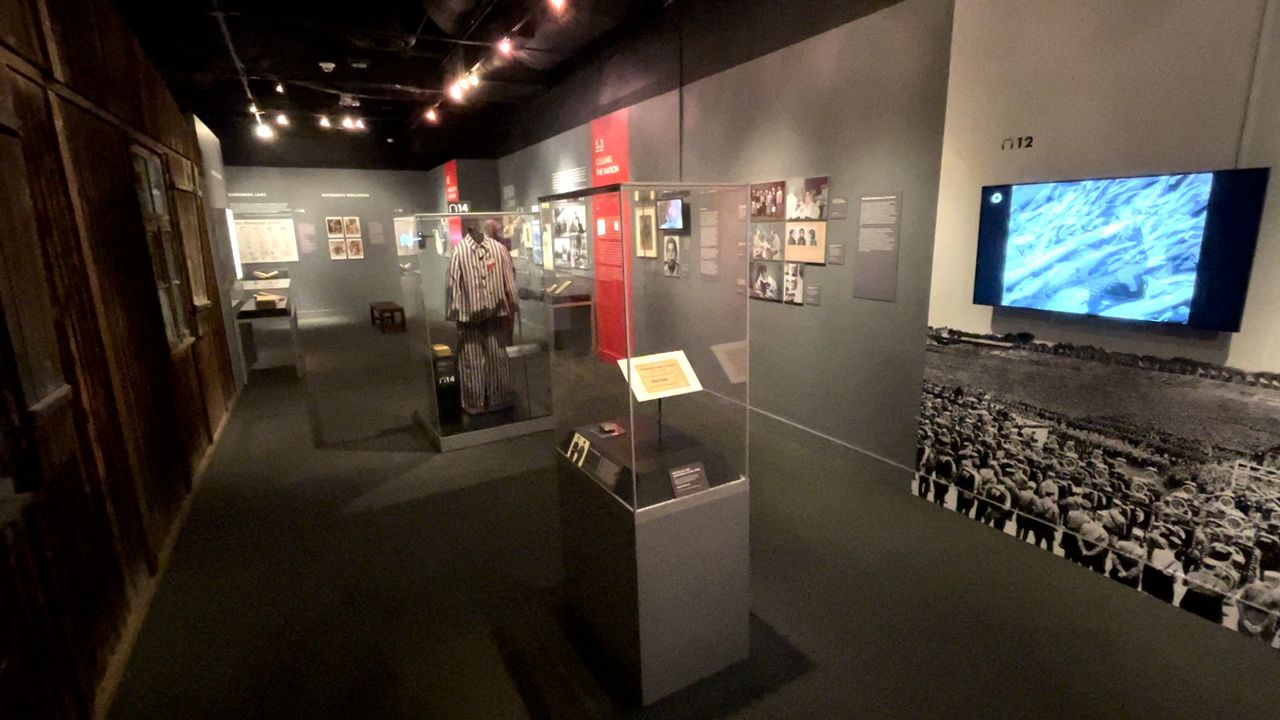NAPA, Calif. — Chelsea Clinton visited Napa County Thursday to highlight a partnership between the California Department of Social Services and the Clinton Foundation’s early childhood development initiative, Too Small to Fail.
The initiative is aimed at creating more welcoming spaces for children and their families throughout the state.
What You Need To Know
- Napa, Riverside and San Joaquin are the first three counties of the pilot program
- Changes to the waiting rooms encourage children to read and play more as opposed to just looking at screens
- Changes include bilingual books, magnetic letter boards, block sets and comfortable seating for both the kids and their caregivers
- Too Small to Fail has transformed many other spaces throughout the country, including laundromats, pediatric hospitals, family courts and grocery stores
“[It] really just illuminates why we do this work to be able to provide children and families with warm, welcoming and also literacy-rich environments wherever they spend time,” Clinton said.
The goal of the program is to create more spaces for kids to read, play and learn.
“Every child and every parent and other caregiver of young children deserve to have access to spaces like this to books, toys, to all that we know is so important to build the building blocks of their brains,” Clinton said.
Napa, Riverside and San Joaquin are the first three counties of the pilot program.
Changes to the waiting rooms encourage children to read and play more as opposed to just looking at screens. Changes include bilingual books, magnetic letter boards, block sets and comfortable seating for both the kids and their caregivers.

Researchers from Public Profit, a research and evaluation organization, found the added books and educational materials have led to a difference in kids’ behavior.
Before the transformation, 33% of the children observed were using technology, which dropped to 13% after the transformation. Children also opted to read more, going from 3% of children opting to read to 15%.
Too Small to Fail has transformed many other spaces throughout the country, including laundromats, pediatric hospitals, family courts and grocery stores.
The newly designed waiting rooms have already had a positive impact on Rashanda Williamson and her 4-year-old son Javon.
“Before I would hand my son a phone so he wouldn’t be running around, so he was distracted. Now that we have the play area for him, it helps eliminate the whole running around because now he has his own little space when he comes here,” Williamson said.
They have been coming to the Napa Health and Human Services building twice a month. The transformed environment makes it easier for the mother and son to spend quality time together.
“Now that they have books and letter boards and puzzles and a little couch and a table, you’re able to be more interactive with your child in this area. Spending maybe an hour that you spend here when you come to the county building for your appointments and stuff,” Willamson said.
According to Too Small to Fail CEO Patti Miller, the waiting room program cost around $200,000, which is split between the partnership.
“I think it’s really critical that families know how important the first five years are for young children’s healthy development and it’s such a critical time for brain development,” Miller said.
Later this month, the waiting rooms of Merced, Humboldt and Riverside will be transformed.
Let "Inside the Issues" know your thoughts and watch Monday through Friday at 8 and 11 p.m. on Spectrum News 1.










